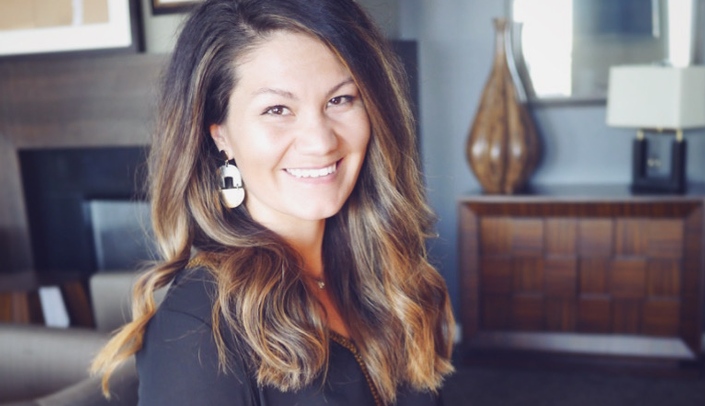A University of Nebraska Medical Center student is part of a team of U.S. scientists advocating for increased diversity in vaccine trials after publishing a new study that highlights disparities.
The study, published online Feb. 19 in the Journal of the American Medical Association Network Open, found that among U.S.-based vaccine clinical trials, people who are Black/African American, American Indian/Alaska Native, Hispanic/Latino and age 65 and older were the most underrepresented groups. Conversely, adult women were overrepresented.
Laura Flores, a UNMC student in the dual MD/PhD program, is first author on the study that analyzed data from 230 U.S.-based vaccine trials (of all phases) with nearly 220,000 participants from July 2011 through June 2020. Data came from vaccine trials registered on ClinicalTrials.gov.
The top findings, after analyzing the studies that reported demographic information, include:
- White people accounted for 78% of all participants
- Women accounted for 56%
- Black/African Americans accounted for 11%
- American Indians/Alaska Natives accounted for 0.4%
- Hispanics/Latinos accounted for 12%
- People 65 and older accounted for 12%
Asian and Native Hawaiian/Pacific Islander participants were equally represented compared to the U.S. population.
The research team also discovered that problems with capturing and underreporting participant demographics remain, despite efforts from the National Institutes of Health and Food and Drug Administration to implement policies and guidelines.
"At a time when there is disproportionately high morbidity and mortality of some racial and ethnic groups as well as older adults due to COVID-19, it is important to know whether we have historically done enough to include them in vaccine clinical trials," Flores said. "We are currently witnessing dramatic health disparities in disproportionate rates of COVID-19 in Hispanic and African Americans."
She said solving the diversity and equity problems require a multi-faceted approach.
"We need to work on ensuring our health care workforce is representative of the population. One step is to diversify medical schools to reflect the population," Flores said. "It’s really important to ensure everyone has equitable access to good care and ensure representation in clinical trials which also should improve health outcomes."
Flores’ collaboration with the research team began with Julie Silver, MD, a senior author of the JAMA study and associate professor at Harvard Medical School. Dr. Silver introduced Flores to UNMC alum Steve Pergam, MD, a corresponding author at Fred Hutchinson Cancer Research Center. Flores and Dr. Silver have published a number of papers on health care workforce disparities facing Hispanic and Black/African American patients.
Flores, who will graduate from UNMC’s PhD program in 2022 and the MD program in 2024,
said working and learning from other scientists is a "big honor and responsibility." It also, she said, gives her experience identifying problems facing patients and how to solve them.
To read the paper, go to https://jamanetwork.com/journals/jamanetworkopen/fullarticle/10.1001/jamanetworkopen.2020.37640?utm_source=For_The_Media&utm_medium=referral&utm_campaign=ftm_links&utm_term=021921.
SIDEBARS/PULL QUOTES
"The COVID-19 pandemic and its devastating impact, particularly on Black, Indigenous and people of color communities and older adults, is a painful reminder of the health disparities in our country. This collaborative work highlights a problem that’s plagued the scientific community for too long — inadequate representation in clinical trials. The diversity seen in COVID-19 vaccine trials demonstrate we can do this, but we need to assure future studies focus not just on rapid enrollment but also on inclusion."
Steve Pergam, MD, corresponding author and associate professor, Fred Hutchinson Cancer Research Center Vaccine and Infectious Disease Division
"Going forward, we need to ensure all vaccine studies report demographic information. Although we have some missing data, it is clear from the large number of studies which did report this information, that racial and ethnic minorities as well as older individuals are frequently not being equitably represented."
Julie Silver, MD, senior author and associate professor, Harvard Medical School Department of Physical Medicine and Rehabilitation
We are Nebraska Medicine and UNMC. Our mission is to lead the world in transforming lives to create a healthy future for all individuals and communities through premier educational programs, innovative research and extraordinary patient care.
Twitter | Facebook | Instagram | YouTube | Flickr
